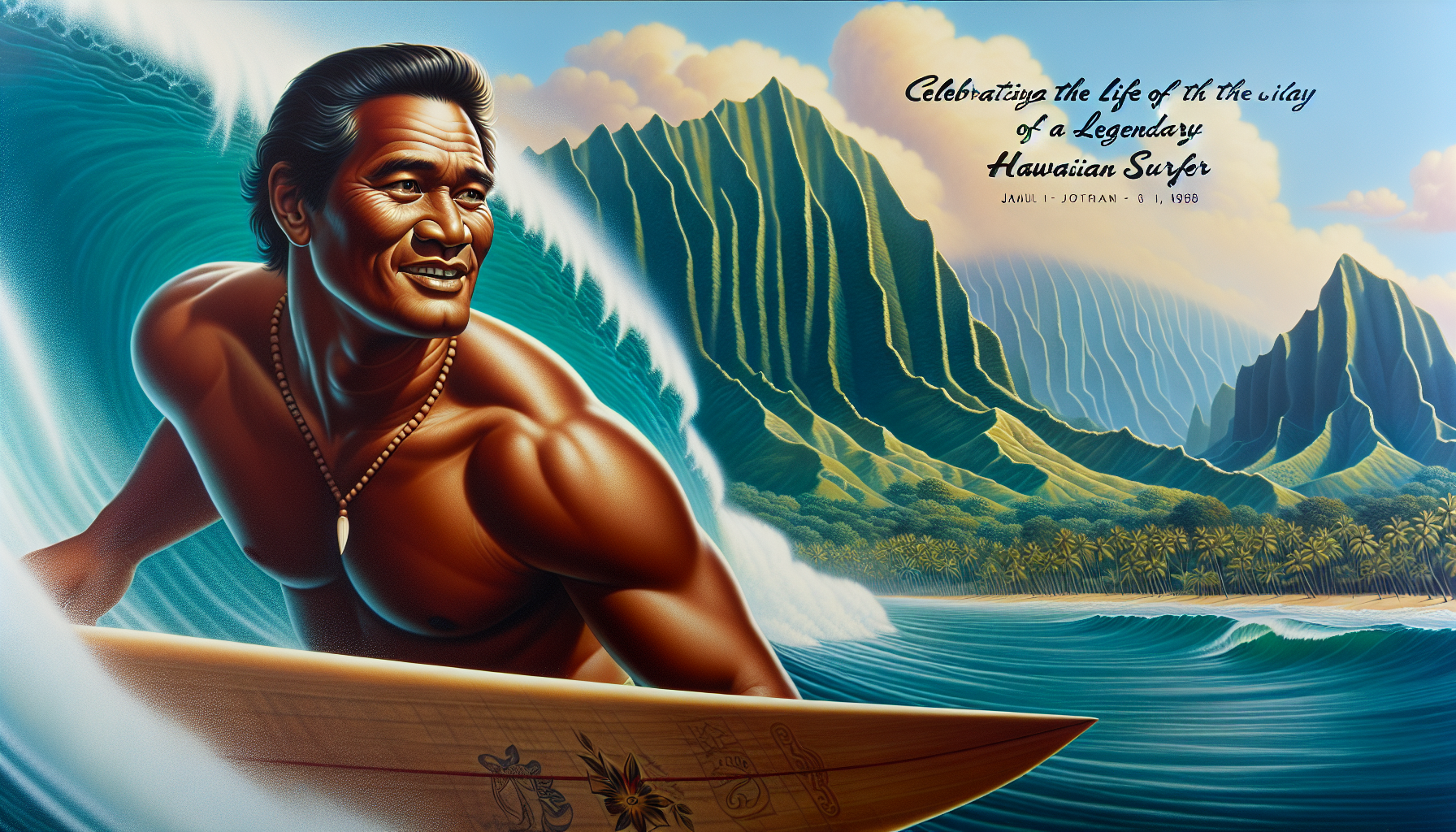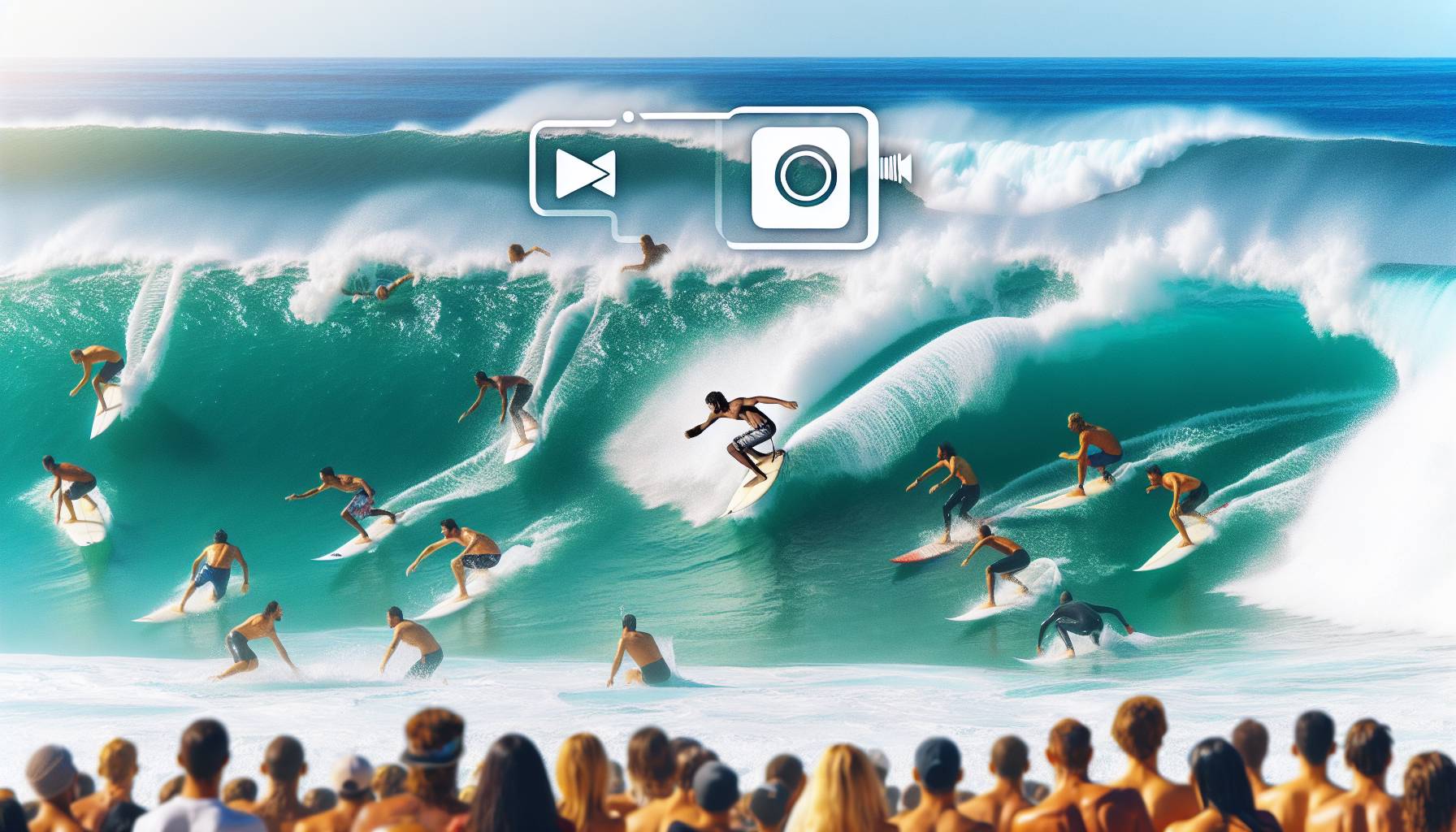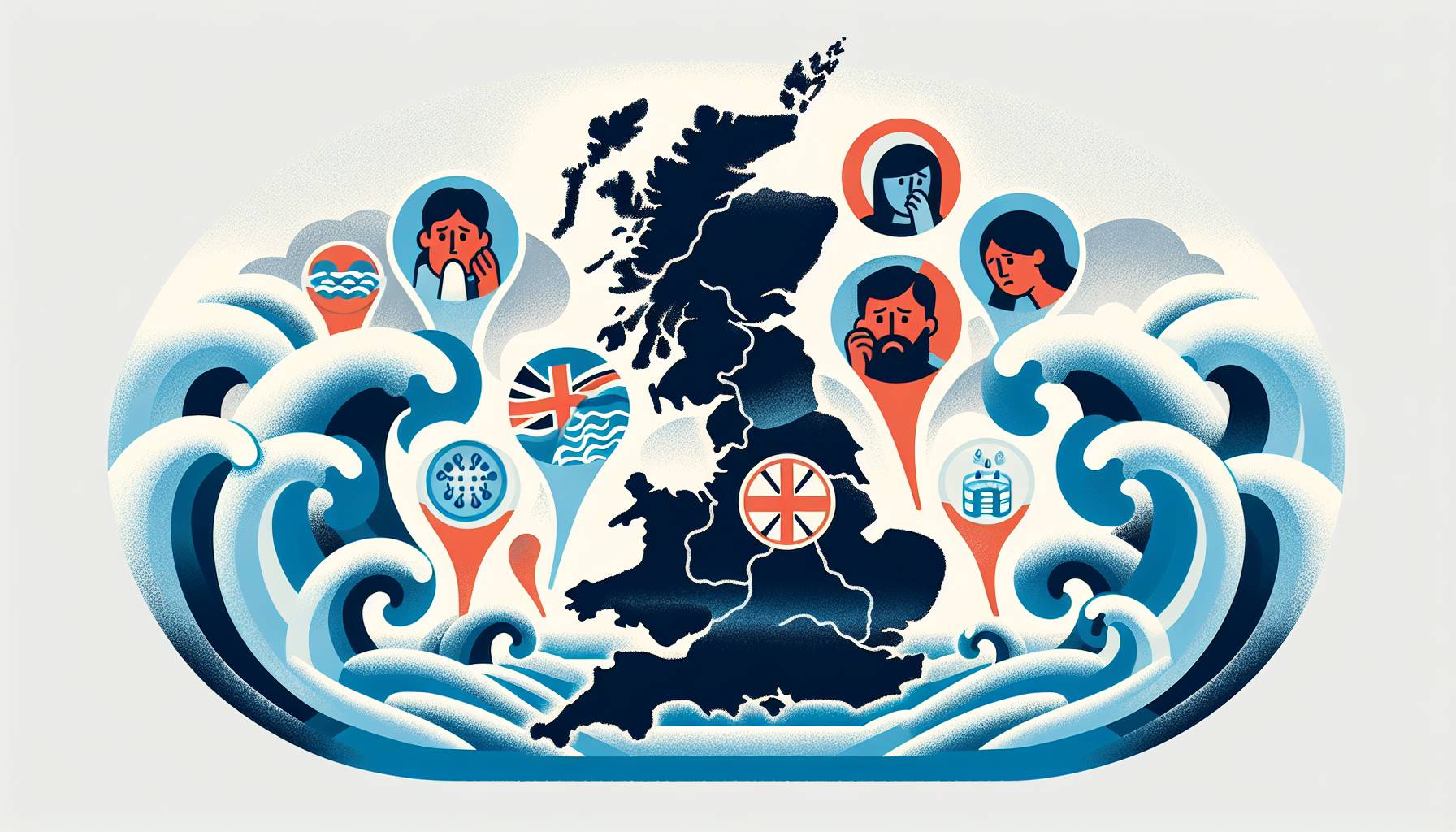
Legacy of the Aikau family
The Aikau family holds a revered place in the history of Hawaiian surfing, known not only for their exceptional skill in the water but also for their deep cultural connection to the ocean. Rooted in Native Hawaiian traditions, the Aikaus have long been seen as guardians of the sea, embodying values of courage, humility, and service. Their legacy is inseparable from the story of modern surfing, particularly in the realm of big-wave riding, where they helped define what it means to be a true waterman.
At the heart of this legacy is the legendary Eddie Aikau, whose name has become synonymous with bravery and sacrifice. As the first lifeguard at Waimea Bay, Eddie saved countless lives, often paddling out in conditions others wouldn’t dare face. His tragic disappearance during the 1978 Hōkūleʻa voyage only deepened the reverence for his life and mission. The phrase “Eddie Would Go” became a rallying cry in the surf community, symbolising the fearless spirit and selflessness that defined him.
But the Aikau legacy is not solely about Eddie. It is a family story, woven through generations of surfers, lifeguards, and cultural stewards. Their commitment to preserving Hawaiian values and sharing them with the world has made the Aikaus more than just a surfing family — they are cultural icons. Their influence extends beyond the waves, touching on themes of identity, heritage, and community.
For Australian surfers, the Aikau family represents a powerful example of how surfing can be more than a sport — it can be a way of life, deeply connected to land, sea, and ancestry. Their story resonates with those who see the ocean not just as a playground, but as a sacred space that demands respect and offers profound lessons in return.
Clyde’s unique spirit and contributions
While Eddie Aikau’s name became legendary, it was Clyde who carried the torch with a quiet strength and enduring presence that left an indelible mark on the surfing world. Known for his calm demeanour and deep respect for the ocean, Clyde brought a sense of grace to big-wave surfing that complemented his brother’s bold legacy. He was not only a formidable surfer in his own right — winning the 1986 Quiksilver in Memory of Eddie Aikau at Waimea Bay — but also a mentor and cultural ambassador who helped keep the Aikau spirit alive through decades of change in the sport.
Clyde’s approach to surfing was deeply rooted in Hawaiian values. He saw the ocean as a teacher and a source of spiritual connection, not just a place for competition. This perspective resonated with surfers around the world, including many in Australia, where respect for the ocean and its power is a shared ethos. Clyde’s ability to blend performance with purpose made him a unique figure — someone who could charge 30-foot waves with humility and then speak softly about the mana, or spiritual energy, of the sea.
Beyond the lineup, Clyde was a storyteller and cultural guide. He often spoke at schools, surf events, and community gatherings, sharing not only tales of big waves but also the deeper meanings behind Hawaiian traditions. His stories weren’t just about surfing — they were about family, responsibility, and the importance of staying true to one’s roots. In doing so, he helped bridge the gap between generations and cultures, offering a model of what it means to live with integrity and aloha.
His contributions extended to the preservation of Hawaiian heritage, particularly through his involvement in the Eddie Aikau Foundation. Through this platform, Clyde supported educational programs, scholarships, and cultural initiatives that honoured his brother’s legacy while also creating opportunities for young people to connect with their heritage. His work ensured that the Aikau name remained not just a symbol of surfing excellence, but also of community service and cultural pride.
For many in the Australian surf community, Clyde’s life serves as a reminder that greatness in the water is only part of the story. His humility, resilience, and unwavering commitment to his family’s values offer a powerful example of how surfers can be leaders both in and out of the ocean. In a world where the sport continues to evolve, Clyde Aikau stood as a steady presence — a man who honoured the past while quietly shaping the future.
Inspiring future generations through resilience
Clyde Aikau’s legacy lives on not only through his own achievements but through the countless lives he touched and inspired. His resilience — forged in the face of personal loss, cultural change, and the ever-demanding ocean — became a beacon for younger generations seeking purpose and identity through surfing. For many young surfers, especially those navigating the pressures of modern competition and social media, Clyde’s life offers a grounding force, reminding them that true strength lies in humility, perseverance, and connection to one’s roots.
He often spoke of the importance of staying connected to the land and sea, encouraging youth to embrace their heritage and understand the deeper meanings behind their actions in the water. This message resonates strongly with Australian surfers, particularly Indigenous communities who share a similar reverence for nature and ancestral knowledge. Clyde’s emphasis on cultural pride and environmental respect aligns with growing movements in Australia that seek to blend surfing with stewardship and storytelling.
Through his work with the Eddie Aikau Foundation, Clyde helped create pathways for young people to engage with their culture and community. The foundation’s scholarships and outreach programs have empowered students to pursue education while staying rooted in their values. These efforts have inspired similar initiatives in surf communities around the world, including in Australia, where local organisations are increasingly recognising the role of surfing in youth development and cultural preservation.
Perhaps most importantly, Clyde’s resilience was not loud or boastful — it was quiet, steady, and deeply human. He showed that it’s possible to face adversity with grace, to honour loss by lifting others, and to lead not through ego but through example. His story continues to ripple outward, encouraging the next generation of surfers to ride not just for glory, but for meaning, connection, and legacy.
In surf clubs, schools, and coastal communities across Australia, Clyde Aikau’s influence can be felt in the way young surfers talk about respect, heritage, and responsibility. His life reminds us that resilience is not just about surviving the biggest waves — it’s about rising with purpose, again and again, no matter what the ocean brings.
Legacy of courage and connection
When you talk about courage in the surf world, the Aikau name hits like a clean six-foot set at Waimea. But Clyde Aikau didn’t just ride the waves — he rode the legacy of a family that stared down the ocean with respect and zero fear. Born into a Hawaiian family where the sea was more than just water — it was blood, spirit, and home — Clyde carried that torch with quiet strength and a grin that said, “Yeah, I’ve seen bigger.”
While his older brother Eddie became the stuff of legend — the bloke who’d paddle out when others wouldn’t — Clyde was right there, charging the same monsters, but with his own flavour. He wasn’t just following in Eddie’s footsteps; he was carving his own line, one drop at a time. And he did it with a kind of calm that made you think the ocean was lucky to have him.
“Clyde was the one who best channeled and reflected the light, the upside, of the Aikau family,”
— surf historian Matt Warshaw
That light wasn’t just about big waves and bigger guts. It was about connection — to the ocean, to his culture, and to the people around him. Whether he was pulling into a bomb at Sunset or sharing stories with groms on the beach, Clyde made you feel like you were part of something bigger. Something ancient. Something that mattered.
- He surfed Waimea into his 60s — not for glory, but for love of the break.
- He kept the Eddie Aikau Invitational alive, not as a contest, but as a tribute.
- He showed that courage isn’t just about charging — it’s about caring, too.
In a world full of noise, Clyde was the quiet heartbeat of a family that lived and breathed aloha. And mate, that kind of courage? That’s rarer than a windless day at Bells.
A bridge across generations
Clyde had this way of making the past feel alive without ever sounding like he was stuck in it. He wasn’t just telling stories about the old days — he was handing down mana, the spiritual energy of his ancestors, like it was a waxed-up single fin ready for the next set. Whether it was a young Hawaiian grom or a wide-eyed Aussie backpacker with a foamie under one arm, Clyde gave everyone the same respect and stoke.
He mentored with a quiet fire — never barking orders, just leading by example. You’d see him out at Waimea, still paddling into bombs well past the age most blokes are swapping boards for bar stools. And when he spoke, it wasn’t about ego or trophies. It was about honouring the ocean, respecting the culture, and keeping the flame lit for the next crew coming up behind him.
“He was the keeper of the flame, but he never made it about himself,”
— longtime friend and fellow surfer, Brian Keaulana
At the Eddie Aikau Invitational, Clyde wasn’t just the last man standing from the original crew — he was the soul of the event. He made sure it stayed true to its roots: invite-only, no nonsense, and only run when the ocean roared loud enough to demand it. That kind of integrity? It’s as rare as a flat day on the Gold Coast in cyclone season.
- He surfed the final heat of the Eddie in 2016 — at 66 years old — just to honour his brother and the spirit of the event.
- He spoke at schools, surf clubs, and community gatherings, always with the same message: respect the ocean, respect each other.
- He made sure the next generation knew that being a waterman wasn’t just about charging — it was about giving back.
In every lineup, every handshake, every story told under a beachside tree, Clyde was the thread that tied the past to the present. He didn’t just pass the torch — he lit it with aloha and made sure it burned bright enough for the next mob to see their way forward.

